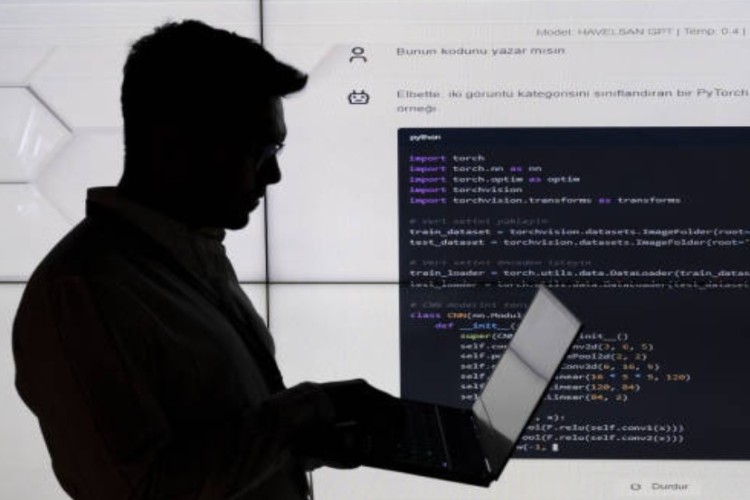
Employers have embraced algorithms to monitor, allocate and assess work, but the promised efficiencies often come at a steep human cost. A new International Labour Organisation report, Revolutionising Health and Safety: The Role of AI and Digitalisation at Work, finds that algorithmic management is eroding job quality across India, intensifying surveillance and ratcheting up work pressure. A 2024 joint study by the ILO and the European Commission reinforces the warning: whereas France and Italy saw few ill-effects, algorithmic management correlated with poorer work quality in South Africa and India.
Behind the jargon of algorithmic management lies a quiet but sweeping change in how work is organised: software now decides who gets what task, how fast it must be done, and how every keystroke or kilometre is judged. To grasp the stakes, one must trace the technology’s journey from gig-economy pioneers to India’s factories, warehouses and call centres, weigh its vaunted productivity gains against mounting evidence of physical strain, mental stress and data-privacy risks, and ask whether India’s still-nascent regulatory framework can protect workers without stifling innovation.
READ | New EV policy may offer tariff cuts, investment sweeteners
What is algorithmic management
Software now performs functions once reserved for supervisors—matching workers to tasks, tracking performance in real time and rating individuals against data-driven metrics. The technology draws on big-data analytics, machine learning, geolocation and even wearables, and has leapt from ride-hailing and food-delivery platforms into warehouses, factories, call centres and hospitals.
Employers argue that algorithmic management is indispensable in an era of remote and hybrid work. Yet only 16% of Indian teleworkers have a dedicated workspace, leaving the rest vulnerable to poor ergonomics—and to the musculoskeletal pain, eye strain and fatigue that follow. Extended screen time, limited movement and round-the-clock connectivity are also fuelling obesity, diabetes and cardiovascular disease.
When designed to support rather than control, algorithms can in theory balance workloads, flag skill gaps and stamp out workplace bullying. In practice, the record is mixed. The OECD’s survey of 6,000 firms across six rich economies shows managers appreciate the consistency of automated decisions, but worry about opaque logic, blurred accountability and weak safeguards for workers’ health.
In advanced economies the same OECD survey finds that adoption is now mainstream: nearly six in 10 large firms in France, Germany, Japan, Spain, Italy and the United States rely on algorithm-driven tools for at least one core HR function.
Managers there credit algorithmic management with sharper demand forecasting and leaner staffing rosters, while stronger data-protection rules and works-council oversight appear to blunt the worst excesses. Even so, a third of respondents reported push-back from unions over opaque performance scoring, and 27% admitted that the technology had triggered formal grievances on grounds of bias or privacy breaches—evidence that regulation, though tighter than in India, is still playing catch-up.
Constant pressure, little recourse
The picture is starker in other emerging markets. The ILO–European Commission’s 2024 cross-country study shows that in South Africa, Brazil and Indonesia—where labour-inspection regimes are weaker—algorithmic oversight has coincided with longer working hours, steeper pay deductions for “low productivity” and a marked rise in musculoskeletal complaints among warehouse staff.
Surveyed workers also flagged “data fatigue”, saying they spend up to 12% of their shift interpreting dashboards that determine daily earnings. Taken together, the findings underscore a widening governance gap: while developed nations struggle to fine-tune safeguards, many developing peers are still scrambling to erect even the most basic guardrails.
In India’s platform economy these risks are already visible. Food-delivery riders for Zomato or couriers for e-commerce firms find that lateness—even in heavy traffic—can trigger automatic pay cuts. Call-centre staff discover their bathroom breaks and call lengths are clocked to the second, with minor infractions logged as “behavioural”—a euphemism for deductions or lost bonuses. The result: heightened stress and a corrosive loss of autonomy.
Cyber-security poses another hazard. A breach that tampers with automated safety controls in a factory, for example, could place workers in immediate danger. Privacy advocates warn that India’s draft Digital Personal Data Protection Act still sidesteps the question of workplace surveillance, even as the EU moves ahead with stringent rules on AI transparency.
The ILO stresses that outcomes depend less on the technology than on the guardrails around it. India’s National Policy on Safety, Health and Environment at the Workplace endorses “safe and clean technologies” and computer-aided risk assessments, but enforcement is uneven and future-proof regulations remain elusive. Trade unions representing gig workers have begun to demand algorithmic fairness clauses, yet their bargaining power lags behind the pace of technological adoption.
Until lawmakers plug the gaps, India risks letting efficiency trump dignity. The challenge is to harness algorithms for smarter, safer work—without turning workers themselves into data points on a dashboard.
